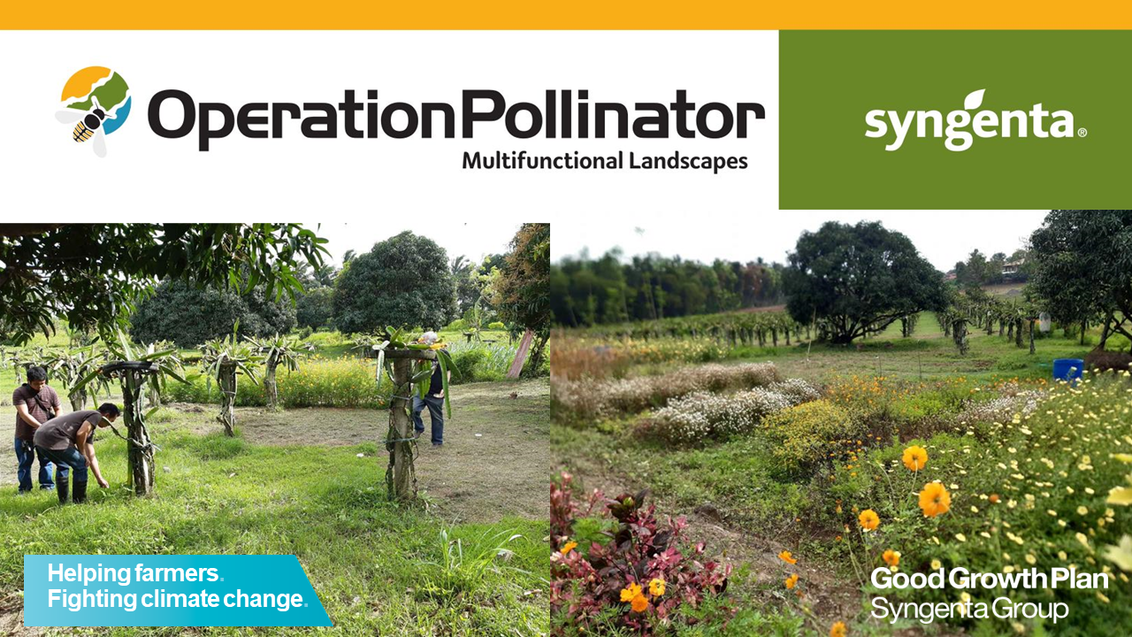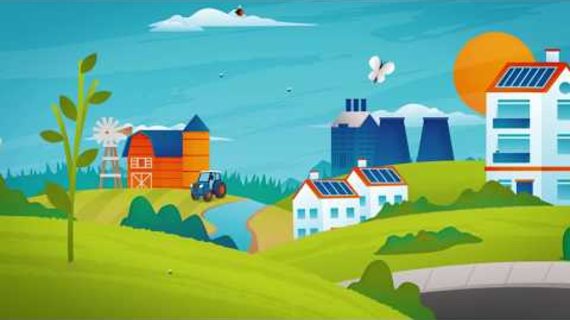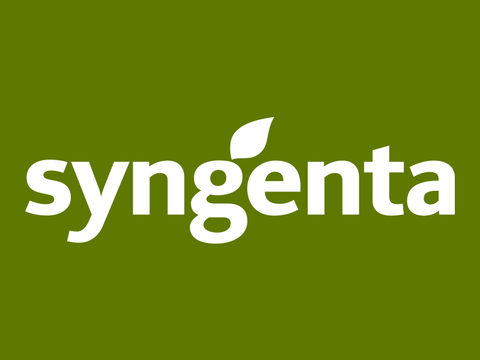Syngenta’s Operation Pollinator is supporting Filipino farmers and bees alike!

The Operation Pollinator program creates essential habitats for bees and other beneficial insects in field margins, fallow areas, and other non-productive land surrounding crop fields. The program increases and improves habitats to boost pollinator numbers, health and variety. This contributes significantly to crop production because more than 75% of food crop types depend in part on insects and other animals for pollination.
Globally, Syngenta has been heading this initiative for the last 15 years. Locally, the project began with a 2017 training on beekeeping and pollinator management. The following year, in 2018, Syngenta Philippines embarked on a collaborative project with the UPLB Bee Project Team for the creation of a pollinator pasture and sanctuary in an agro-ecosystem. The project then was designed to create bee pastures as sustained habitats for pollinators in mango farms in Calatagan, Batangas and Calamba, Laguna. The project also aimed to determine the effect of the pasture on the abundance of pollinators, population growth of bees, and crop yield. As of 2019, more than 8 mio hectares of farmland in 41 countries worldwide have benefitted from the enhanced biodiversity through Operation Pollinator.
In the Philippines, Syngenta currently has bee pastures in three experimental sites. The sites have shown that the number and density of pollinator species have increased. This consequently resulted in an increase in the fruit set of eggplants and mangoes by more than 100%.
The pollinator habitats are effectively managed by cultivating bee plants. In Syngenta Philippines farm sites, they grow a nursery of different species of bee plants with staggered flowering times to ensure availability of flowers throughout the seasons. The wide variety of forage resources sustains the population of pollinators while the target crops have yet to flower.
The program also educates and trains farmers on how to establish pollinator habitats, develop pollinator pastures, and manage natural pollinators.
“Sa paglalagay ng mga bulaklakin o ng bee pasture hindi lamang gumanda ang ani at ang kabuuan tingin ko sa bukid, ito rin ay nagpapagaan ng aking pakiramdam. Ang oras ay hindi ko na namamalayan at ang bawat gawain ay parang magaan ” said Renato Alcantara, also known as Kuya Natoy, one of the farmer cooperators.
Pollination is an important part of enhancing overall biodiversity, improving crop yields, and securing a balance between sustainable farming and environmental protection.
“Plant it and they will come,” assures UPLB Bee Project Team representative Ame Locsin, as they encourage all Filipino farmers and every Filipino to create pollinator pastures in their own farms, backyards, and unused land.

